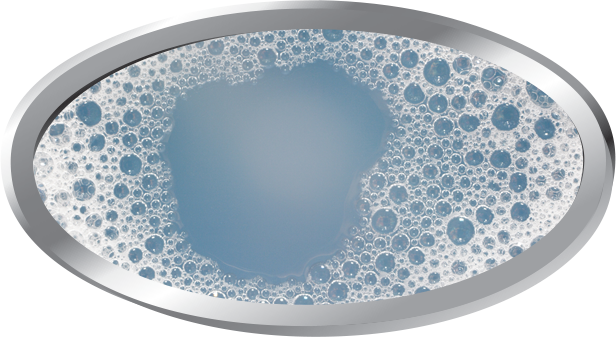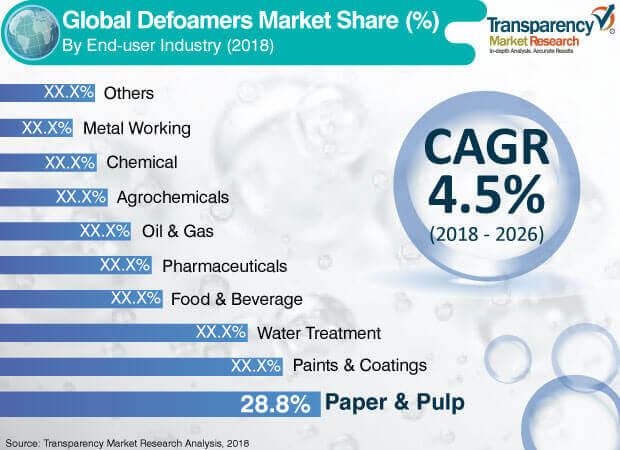The Role of Defoamers in the Chemical and Food Processing Industries
The Role of Defoamers in the Chemical and Food Processing Industries
Blog Article
The Function of Defoamers in Enhancing Product High Quality and Efficiency
In various producing procedures, the existence of foam can substantially impede product high quality and operational efficiency. Defoamers act as crucial ingredients that alleviate this issue, making certain smoother production operations while enhancing the aesthetic and practical attributes of the end products (defoamers). Their application extends a wide range of markets, from food and drink to drugs, where consistency and dependability are extremely important. However, the choice of the proper defoamer can be vital to accomplishing ideal results, raising vital questions concerning solution compatibility and performance metrics that warrant more expedition.
Understanding Defoamers
Understanding the function of defoamers is vital for keeping item high quality across various industries. Defoamers are chemical ingredients made to lower and protect against the development of foam in liquid systems, which can negatively influence procedures such as mixing, filling, and surface tension. Lathering can cause inadequacies, item defects, and compromised aesthetic appeal, making defoamers a vital element in producing procedures.
In industrial applications, defoamers help to enhance product consistency and stability. As an example, in the paint and coverings market, foam can conflict with the application procedure and the final coating. In food and beverage production, excessive foam can prevent bottling and product packaging performance. The reliable use defoamers not only ensures smoother production procedures but additionally contributes to remarkable product efficiency.
Furthermore, the choice and solution of a defoamer must straighten with particular application requirements, such as compatibility with various other components, effectiveness under varying temperature level and pH problems, and possible regulative restrictions. Eventually, comprehending defoamers' features and their value in various formulas is crucial for optimizing production and guaranteeing the finest final result.
Kinds Of Defoamers
Defoamers can be categorized right into a number of types based upon their make-up and device of action. The main types include silicone-based, non-silicone organic, and inorganic defoamers.
Silicone-based defoamers are amongst one of the most efficient, primarily due to their capacity to spread rapidly on the fluid surface area and interfere with foam formation. Their unique chemical structure allows for premium stability, making them ideal for high-temperature applications and settings with varying pH degrees.
Non-silicone organic defoamers, often made up of fatty acids or all-natural oils, are valued for their biodegradability and reduced poisoning. These are commonly made use of in food and beverage applications where security and environmental effect are extremely important.
Inorganic defoamers, which include substances like talc or calcium carbonate, act by enhancing the density of the fluid, consequently lowering foam security. They are commonly utilized in industrial processes where compatibility with other products is not a concern.
Each sort of defoamer has unique benefits and restrictions, allowing for customized solutions depending on the specific lathering issues run into in various applications. Recognizing these distinctions is vital for optimizing performance and achieving wanted item high quality.
Applications Throughout Industries
Countless sectors leverage defoamers to boost item high quality and operational effectiveness. In the food and beverage market, defoamers are important in processes such as brewing and dairy products production to stop foam formation, which can result in ineffectiveness and item inconsistency. By controlling foam, suppliers can make certain i thought about this far better yield and a more consistent item.
In the pharmaceutical sector, defoamers play an important function in the formulation of fluid drugs, where excessive foam can restrain mixing and exact application. Their usage assists preserve the honesty of the formulas and promotes smoother manufacturing processes.
The paint and finishes sector also depends on defoamers to enhance the performance of products during application. By minimizing foam, these additives make certain a smoother surface and boost the visual high qualities of the final item.

Advantages of Making Use Of Defoamers
While the application of defoamers differs throughout industries, their advantages constantly enhance product high quality and procedure performance. One substantial benefit is the reduction of foam formation throughout making processes, which can or else lead to manufacturing delays and inconsistencies in product quality. By reducing foam, defoamers enable a smoother circulation of products, promoting a lot more reliable operations and decreasing the possibility of tools malfunctions.
Furthermore, using defoamers can boost the appearance and structure of last products. In sectors such as coverings, paints, and food handling, excessive foam can endanger the aesthetic appearances and overall high quality, while the ideal defoamer application guarantees an uniform surface and preferable features. Defoamers can add to set you back financial savings by reducing waste during manufacturing and optimizing the use of raw products.

Selecting the Right Defoamer
Picking the right defoamer is crucial for optimizing manufacturing processes and making certain item quality. The selection of defoamer affects not just the effectiveness of foam control yet likewise the total performance blog here features of the end product. Aspects to take into consideration consist of the sort of application, Related Site the chemistry of the formulation, and the environmental problems under which the product will be used.
Different markets might require details defoamer types, such as silicone-based, natural, or polymeric defoamers. Recognizing the compatibility of the defoamer with the primary active ingredients is vital to prevent unfavorable reactions that could compromise product honesty. Additionally, the defoamer's performance in different temperatures and pH degrees have to be reviewed to ensure regular performance.
Checking the defoamer in small applications can supply useful understandings into its efficiency and viability. Consideration of regulatory compliance, specifically in food, drugs, and cosmetics, is critical in selecting a defoamer. Ultimately, a complete evaluation of these elements will bring about the selection of a defoamer that not only controls foam successfully but also improves the top quality and efficiency of the end product.
Verdict

In final thought, defoamers are necessary additives that dramatically enhance product quality and performance across various sectors. By properly decreasing foam development, these agents not just enhance operational performance however also add to the practical and aesthetic honesty of items. The critical choice and application of defoamers bring about set you back savings, maximized source usage, and increased consumer contentment. On the whole, the significance of defoamers in commercial processes can not be overemphasized, as they play an important role in attaining regular and top notch outcomes.
Frothing can lead to inadequacies, item problems, and compromised aesthetic appeal, making defoamers a vital element in manufacturing operations.

Report this page